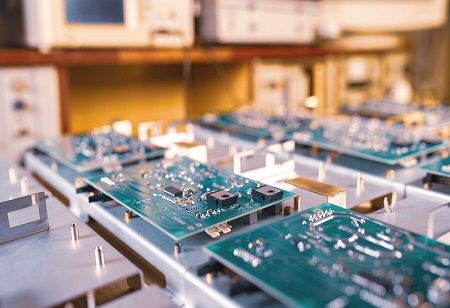
- Japan’s investment deal supports global chip supply chain security.
- Taiwanese firms using Japanese tech may qualify for US-based funding.
- Japan trades profit share for lower US tariffs, saving $67B in duties.
According to Japan's chief trade negotiator Ryosei Akazawa, the $550 billion investment agreement from this week's US tariff deal could support a Taiwanese company constructing semiconductor factories in the US. Japan consented to the comprehensive US-focused investment program, encompassing equity, loans, and guarantees, in return for reduced tariffs on its exports to the US.
"Japan, the United States, and like-minded countries are working together to build supply chains in sectors critical to economic security," Akazawa told public broadcaster NHK.
He stated that projects qualifying for funding through the package are not restricted to companies from the U.S. or Japan. "For example, if a Taiwanese chipmaker builds a plant in the U.S. and uses Japanese components or tailors its products to meet Japanese needs, that's fine too,” he said, without specifying companies.
The U.S. heavily depends on Taiwan’s TSMC for cutting-edge chip production, leading to economic security worries because of its closeness to China.
Also Read: Japan eyes bigger role in Gujarat's semiconductor, EV push
In March, TSMC revealed intentions for a $100 billion investment in the U.S. alongside President Donald Trump at the White House, in addition to a $65 billion commitment for three facilities in Arizona, with one already operating.
Japan will utilize the state-owned Japan Bank for International Cooperation (JBIC) and Nippon Export and Investment Insurance (NEXI) for these investments. A recent law revision has allowed JBIC to fund foreign firms considered essential to Japan's supply chains.
Akazawa informed NHK that equity investments would represent only around 1-2% of the $550 billion, indicating that the majority will be provided as loans and guarantees. When inquired about the White House assertion that the U.S. would keep 90% of the profits from the package, he specified that this percentage pertains solely to equity investment returns, which would constitute a minor part of the overall total.
Although Japan initially aimed to obtain 50% of the returns, any loss from the profit-sharing concession would be minimal when compared to the approximately 10 trillion yen ($67.72 billion) in tariff expenses that might be prevented through the agreement, he stated. He stated that Japan plans to allocate the $550 billion investments throughout Trump's current term.

